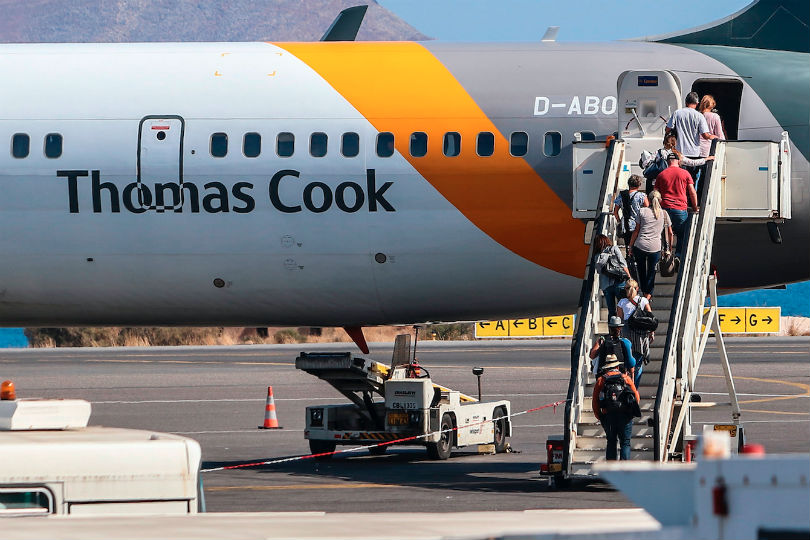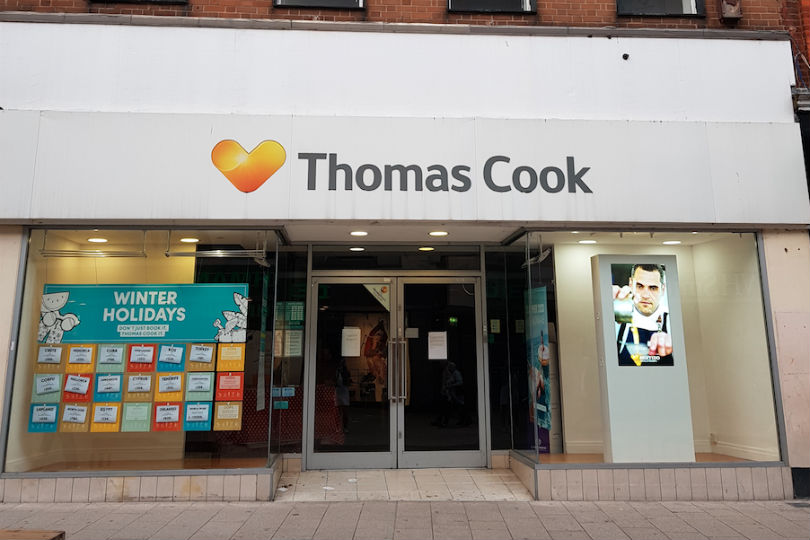Airline insolvency reforms 'could undermine Atol scheme'
 James Chapple
James ChappleGovernment proposals that could formally task the CAA with repatriating Atol and non-Atol protected passengers when an airline goes bust risk “completely undermining” the Atol scheme, it has been warned.
Following the collapse of Monarch in October 2017 and Thomas Cook in September, the government finally set out its proposals for airline insolvency legislation on Thursday (19 December).
It follows publication in May of a report by the Airline Insolvency Review, which called for a small levy on all flight tickets to fund a complete repatriation scheme, underwritten by insurance sourced by the airline sector.
Key reforms proposed by the government in Thursday’s Queen’s Speech include introducing a special administration regime allowing airlines to repatriate their own passengers; extending the CAA’s remit to include repatriation of Atol and non-Atol protected passengers; and giving the CAA greater regulatory powers to oversee airlines’ financial health and mitigate the impact of future insolvencies.
Aito chairman Derek Moore said the proposals, while attempting to address industry grievances on aviation issues, were muddled.
“Allowing carriers to keep flying while they repatriate passengers sounds like progress of a sort, but they still have not accepted the idea of charging a levy on all flight tickets – as suggested by Aito for many years,” Moore told TTG.
“Making the CAA responsible for flying all passengers home, whether Atol protected or not, begs the question: where does the CAA get the funds to fly all customers home?” said Moore, who added it was at least “heartening” the government was addressing the issue of repatriation.
Alan Bowen, legal advisor to the Association of Atol Companies, told TTG that at face value, the new proposals constituted an attack on the Atol system “to the point of completely undermining it” and risked “destroying the scheme’s validity” unless they were paired with the introduction of compulsory airline protection for all tickets, in which case the CAA would require the power to repatriate.
Bowen added he felt the legislation was geared towards large-scale failures after no help was provided for passengers of Flybmi, Wow Air, Primera Air and other carriers that failed this year, who were instead at the mercy of rescue fares.
Following Cook’s collapse, Abta urged the government to bring forward a consultation considering the recommendations of the Airline Insolvency Review, and ensure the matter is devolved from broader aviation strategy.
Like Aito, the association has long flagged the disparities in consumer protection between package holidaymakers and those who book their own arrangements directly with airlines and other suppliers.
Chief executive Mark Tanzer said that while the Cook repatriation was “operationally well-managed” by the CAA, the decision to repatriate all passengers – regardless of Atol protection – “undermined the package holiday sector by incentivising consumers towards unprotected arrangements”.
“Abta has long argued for clarity regarding airline insolvency arrangements and welcomes the commitment in the Queen’s Speech to bring forward legislation,” said Tanzer.
“This is a complex issue, as was recognised by Peter Bucks in the Airline Insolvency Review recommendations, and should include a full consultation to provide a solution as confusion regarding the protection provisions is damaging to customers and businesses alike.”
Moore, Bowen and Tanzer have all called for a full consultation on the proposals. The CAA did not return TTG’s request for comment on Thursday.
Cook compensation
Elsewhere, the government has announced a Thomas Cook compensation scheme to support those customers with liability claims against Cook left outstanding after the iconic operator collapsed in September.
Compensation will be capped and will support customers “facing the most serious hardship” resulting from life-changing injuries, illness or loss of life for which Cook’s UK business would have been liable.
It comes after business secretary Andrea Leadsom in November pledged to provide support for the most serious Cook claims, and legislate to prevent similar situations in the future.
Meanwhile, the Financial Reporting Council (FRC) has announced it will extend its investigation into Thomas Cook’s financial statements in the years leading up to its collapse.
In October, the FRC announced it would probe EY’s audit of Cook’s financial statements for the year ending 30 September 2018. The FRC confirmed on Thursday (19 December) its investigation would now extend to Cook’s financial statements for the year ending 30 September 2017 as well.
It comes after the official receiver last week revealed Cook collapsed with liabilities totalling nearly £9 billion, including £885 million owed to trade creditors; £585 million to customers; and £45 million to employees. Group debt amounted to nearly £7.5 billion.
So, the government has made good on its post-Cook promise to bring forward legislation on airline insolvency. But it raises as many questions as it answers, not least how the proposals would be funded to avoid the cost falling on the taxpayer – again. Reform is long overdue and this is welcome acknowledgement of the issue. But will the airlines play ball this time? History suggests not. The government could have a tough battle ahead.
Sign up for weekday travel news and analysis straight to your inbox

James Chapple
Supplier Directory
Find contacts for 260+ travel suppliers. Type name, company or destination.


















